
When you read this tutorial peak butterfly season will be coming to an end, so we thought we'd help you make the most of the last few weeks by showing you how to capture vibrant close-up images of Britain's most magnificent insects. And of course, these skills are entirely transferable, so you can use them to photograph all manner of minibeasts throughout the rest of the year, too.
Lenses are an essential consideration when shooting close-ups. You'll need a true 1:1 macro lens like our 90mm f/2.8 to make your subject dominate the frame, but you can capture gorgeous close-up images of insects with telephoto lenses such as a 70-200mm f/2.8 or even a close-focusing kit lens like the Nikon AF-S DX 18-55mm f/3.5-5.6G VR II. If you're thinking of buying a macro lens but have a strict budget, don't discount a manual-focus only lens, either.
We photographed our silver-studded blue in a garden using manual focus throughout. Here's how to make sure that your close-ups as beautiful as a butterfly.
1 Tripod vs handheld
You can choose to capture close-ups of insects using a tripod or handheld. Tripods are more effective in the early morning or late evening, when butterflies are roosting and are much more likely to remain still. Shooting at this time will also afford you the best light. Our image was captured mid-morning, in overcast light, when the butterfly was busy feeding. For that reason, we chose to shoot handheld, so we could quickly reframe when the insect moved. Handheld shooting is also useful if a strong breeze keeps moving the insect's perch.
2 Manual focus
Esta historia es de la edición October 2023 de N-Photo: the Nikon magazine.
Comience su prueba gratuita de Magzter GOLD de 7 días para acceder a miles de historias premium seleccionadas y a más de 9,000 revistas y periódicos.
Ya eres suscriptor ? Conectar
Esta historia es de la edición October 2023 de N-Photo: the Nikon magazine.
Comience su prueba gratuita de Magzter GOLD de 7 días para acceder a miles de historias premium seleccionadas y a más de 9,000 revistas y periódicos.
Ya eres suscriptor? Conectar
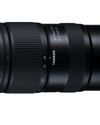
Tamron 28-75mm f/2.8 Di III RXD G2
The original version broke the mould for ‘trinity' standard zooms. The G2 enhances handling and performance further still
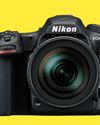
Nikon D500
Nikon's flagship DX-format DSLR is a modern classic. And while it hasn't been out of production for long, it left a hole in Nikon's camera line-up that's never been filled

Laurence Griffiths
With so much sporting action this summer, Laurence Griffiths of Getty Images reveals how to catch every goal at the Euros, details Getty Images' 24/7 Olympics coverage and why he always has a wide-angle ready. Keith Wilson managed to grab him before kick-off...
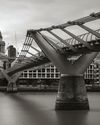
Ghost town
Adam Waring uses ND filters to subdue the hustle and bustle when shooting busy cities

Creative cities
Experienced travel photographer Matt Higgs provides top tips for stunning shots of city sights

If at first you don't succeed...
Tom travels to the other side of the world to have another go at shooting an elusive image and displays the power of his perseverance
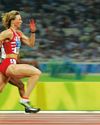
Shoot the summer of sports
Have the Olympics and Euros inspired you to photograph sport? Mike Harris shows you how to score a portfolio of top shots
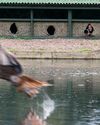
Osprey & prey
Birds of a feather Gary Jones and Leigh Pugh photograph ospreys from a purpose-built hide
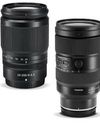
Superzoom lenses
These lenses will have you in for a long stretch, some more than others in the wide-angle to telephoto stakes
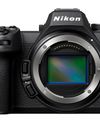
Nikon Z 6III
With a revolutionary 'partially stacked' full-frame sensor, the Z 6III fits flagship camera features in an compact enthusiast-level body